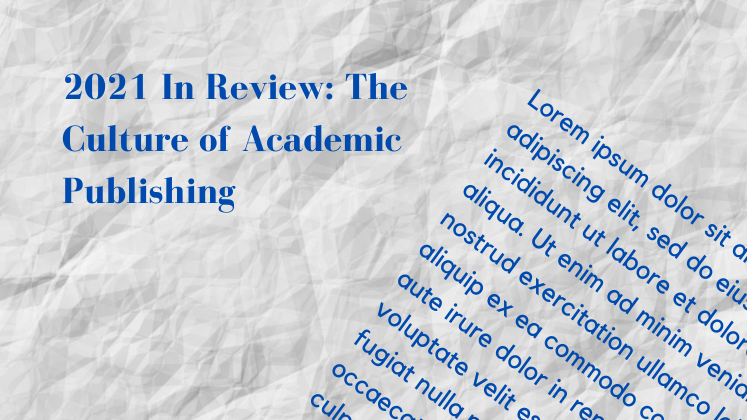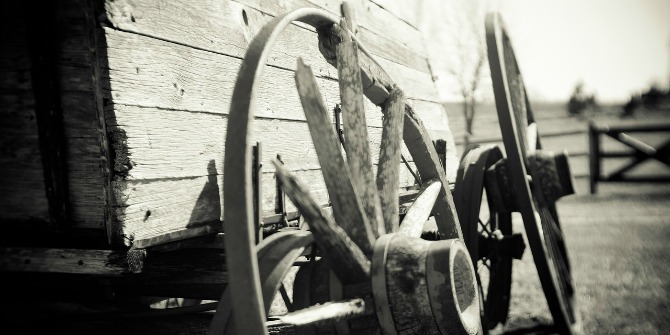Managing Editor Sierra Williams presents a round-up of popular stories from around the web on higher education, academic impact, and trends in scholarly communication.
An exaggerated title given the piece itself confirms these rumours “are almost certainly a hoax”, but still, How ‘Google Science’ could transform academic publishing by Liat Clark at WIRED provides a helpful overview of the previous efforts made my Google to engage the scientific community and suggests some intriguing directions should Google wish to get more involved in improving academic communication.
“Google doesn’t do this for a living, they currently do search for a living… Can they come up with a new model for peer review, with a smarter use of technology and social dynamics? No one has completely cracked this problem yet but maybe Google can. It’s certainly good for people to try.” [read more]
Stephen Curry has written a critical investigation of scientific accountability and self-correcting mechanisms in peer review and publishing transparency. Who governs science? at the Guardian Science Occam’s Corner blog is a thorough and sensitive piece on the pressing issues which the scientific community must address.
The transformation of research from an activity conducted by a few fortunate or well-connected individuals to one that is largely supported by public or charitable sources brings a responsibilities that scientists ignore at their peril. As a community we need to be open — open for dialogue and open for inspection, even if that sometimes entails the discomfort of exposing our human frailties…But if no-one it in charge, how are standards to be enforced? For now regulation is the shared responsibility of individuals and organisations through arrangements that can at best be described as ad hoc…That conversation is certainly important but needs to broaden out to include the public, whose trust we have to maintain. [read more]

Image credit: Schwitzer G, Mudur G, Henry D, Wilson A, Goozner M, et al. (Wikimedia, Creative Commons Attribution 2.5 Generic)
This week’s recommended long-read comes from esteemed digital humanities professor Alan Liu who presents five distinct theses for understanding both the digital age and the processes of making knowledge digital in “Theses on the Epistemology of the Digital: Advice For the Cambridge Centre for Digital Knowledge”. Whilst engaging directly with the future directions of the digital humanities, the piece is filled with insights on the role of knowledge in society and the organization, production, presentation, exploration, and dissemination of academic knowledge more broadly. He writes,
In the digital age, in other words, the “wisdom of the crowd” challenges the very notion of an epistemology, or philosophy, of knowledge. If we were to juxtapose the Enlightenment with the digital age, we might say that (a) the French Revolution paid quit to philosophy (andphilosophes) by advancing a mob mentality that later nineteenth-century “historicists” (and twentieth-century revisionary historians of the Revolution such as François Furet) could only “know” by displacing the Revolutionary “idea” into notions of “spirit [Geist],” “rumor,” “representation,” etc.; and (b) the “digital commons” and “open” movement now represents the resurgence of a similar crowd knowledge challenging scholars. Then and now, the difficulty is that the object of inquiry puts in question the knowledge-standards of scholarly inquiry itself. [read more]
How to Give a Talk That Everyone Remembers by Nacho Caballero on the F1000 Research blog suggests two tips to help researchers create more engaging presentations through a more narrative approach to presenting information which can enable the audience to remember key messages:
- Close PowerPoint and open a text editor
- Notice conventions and challenge them
Tip one really can’t be stressed enough but do check out the full piece for some great advice! [read more]
The final recommendation for this week is the announcement that the Knight Science Journalism Tracker at MIT, which has served the science journalism community and has had a positive influence on enriching the overall discussion of complex scientific research since 2006, is to be shut down in favour of a more centralised platform. The reactions from the community “below the line” are definitely worth a read as the piece prompts due reflection on the nature and fragility of university-led community resources. The response from the former director of the Knight Science Journalism Fellowship, Boyce Rensberger, is particularly erudite:
What comes through to me from the statement above–as I try to read behind the corporatespeak–is that the overall Knight program is moving away from a strict commitment to journalism for the general public and toward new forms of “story telling,” perhaps even toward “science communication.” I fear something worse–a move toward brand journalism (which is not journalism at all) with MIT as the brand. That was something I had to fight when I ran the program for ten years.
Good science journalism stands apart from science. It serves the general public–the readers, viewers and listeners–not the scientific community, not even one of science’s and technology’s greatest institutions of research. It does not exist to “communicate” to the public whatever the scientists and engineers want communicated. That’s the job of a different breed of science writer–the public relations person who stands with the scientists and serves their interests.







